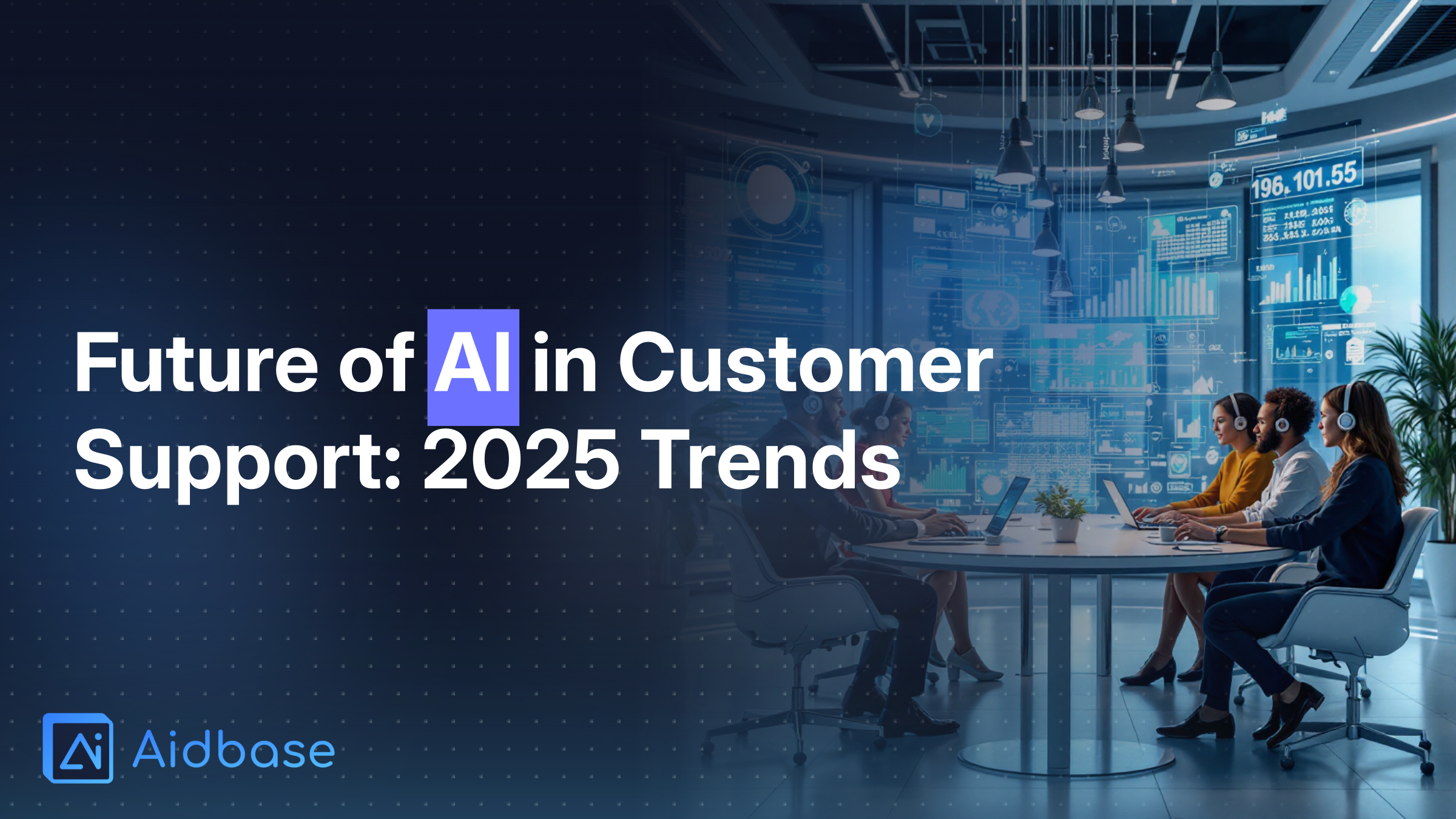Artificial intelligence is transforming customer support by enhancing effic...

Artificial intelligence is rapidly reshaping customer support. As businesses strive to improve customer experiences and remain competitive, AI emerges as a transformative force—unlocking efficiencies, personalizing interactions, and ensuring security. Below, we dive deep into the trends and advancements that are driving the future of AI in customer support for 2025 and beyond.
The rise of digital interactions has pushed businesses to harness AI for better customer service. Today’s customers expect swift, personalized, and secure responses, and traditional support systems often struggle to keep pace. AI-driven support systems have the ability to digest vast amounts of data, learn from past interactions, and deliver proactive solutions. As industries continue to navigate digital transformation, leveraging emerging AI technologies is becoming essential not only for satisfying customer expectations but also for streamlining internal processes. This initial shift towards AI sets the foundation for further innovations that we will explore in the following sections.
New and evolving technologies are merging within the customer support domain. Beyond simple chatbots, AI now encompasses systems with advanced machine learning capabilities, natural language processing, and real-time data integration. Some of the most influential trends include:
Leading platforms, such as those showcased by companies like Zendesk at industry events, are highlighting how combining these technologies can streamline processes and reduce overall support costs. Utilizing tools like Aidbase can also further enhance the integration of these emerging AI technologies within your support ecosystem.
Predictive analytics has emerged as a game-changer in customer support. By leveraging historical data, AI can identify patterns and forecast potential issues before they even manifest. This proactive approach not only minimizes disruptions but also helps in tailoring solutions uniquely for each customer. Some key benefits include:
The integration of these capabilities results in transformative customer experiences—where issues get addressed before they become problems.
Recent advancements in voice recognition technology are fundamentally altering how support is delivered. Modern AI systems are now capable of understanding natural language and contextual nuances better than ever before. Voice recognition offers several advantages:
The precision and speed provided by these systems are leading to more intuitive, efficient, and accessible customer support solutions.
The fusion of AI with IoT and blockchain technologies is opening new frontiers in customer support. AI systems access real-time data from IoT devices to monitor product performance and detect failures immediately. This real-time monitoring facilitates:
A recent study detailed on arXiv highlights the potential of these combined technologies in enhancing both security and operational efficiency, promising a future where customer data and interactions are managed with unprecedented care.
By 2025, several key trends are expected to reshape customer experiences dramatically. These include:
The focus on these trends demonstrates how a commitment to technology and innovation can drive customer satisfaction and loyalty.
For companies eager to stay ahead, adopting forward-thinking strategies is essential. Here are some actionable strategies:
These strategies not only ensure that you remain competitive but also enhance the overall customer experience in a rapidly evolving landscape.
Several companies are already at the forefront of integrating advanced AI technologies into their customer support strategies. One notable example is Zendesk, which has been pioneering the use of AI to streamline support functions. Their recent presentations at the Zendesk Relate 2025 event showcased:
For more detailed insights on these innovations, you can refer to the live updates from the event on TechRadar.
These case studies offer practical examples of how innovative approaches to AI are creating new benchmarks in customer support. Companies that embrace these tools often experience improved efficiency, higher customer satisfaction, and a significant competitive edge.
As AI continues to evolve, the future of customer support promises a landscape defined by personalization, efficiency, and robust security. Businesses must proactively invest in training, embrace new technologies, and foster a culture of continuous innovation. Leveraging predictive analytics, voice recognition, and integrations with emerging technologies like IoT and blockchain will not only streamline operations but also create unmatched customer experiences.
Now is the time for organizations to prepare for this digital revolution. By adopting these strategies and keeping abreast of the latest trends, companies can position themselves as leaders in the evolving realm of customer support. The future is already here, and those who adapt early will reap the rewards of enhanced customer satisfaction and long-term growth.